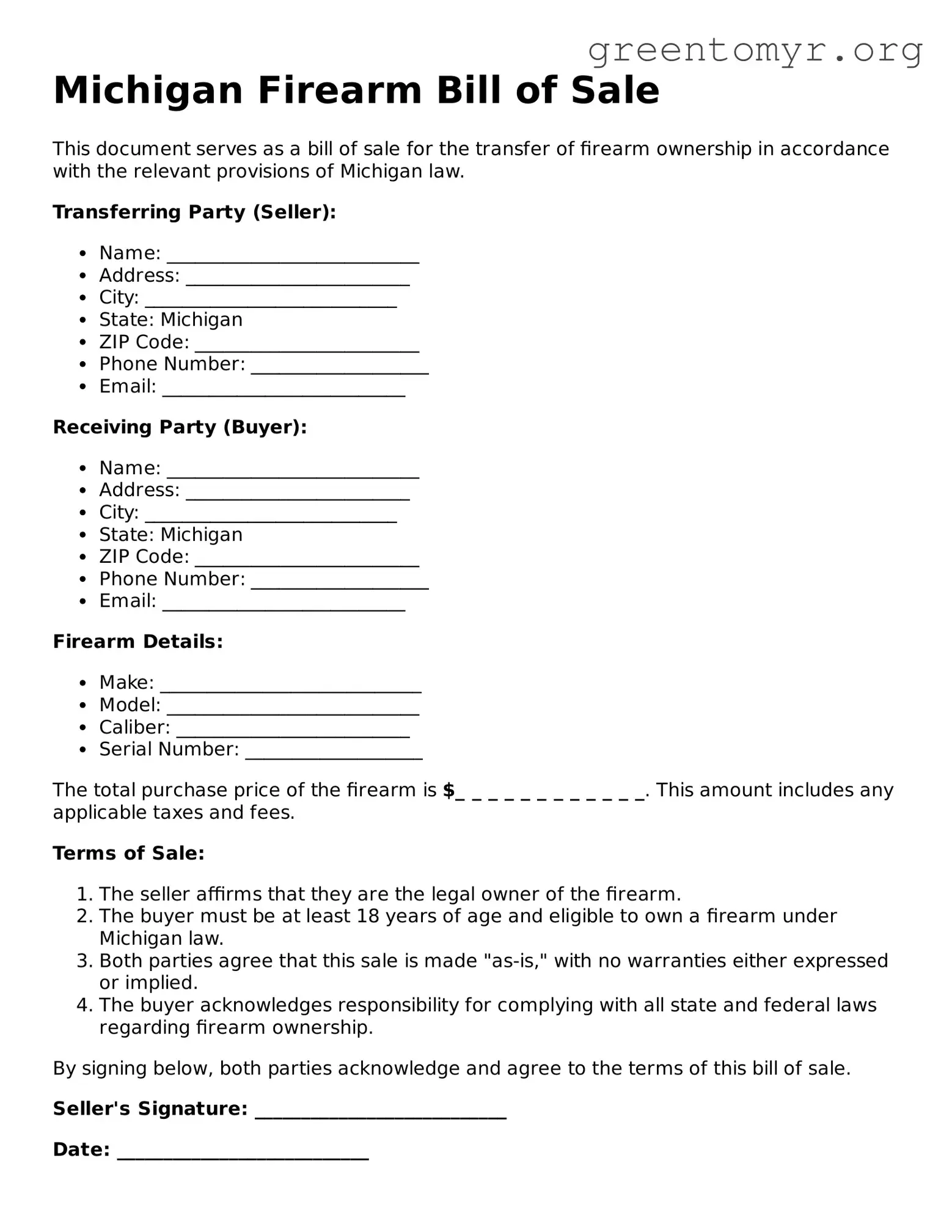Michigan Firearm Bill of Sale
This document serves as a bill of sale for the transfer of firearm ownership in accordance with the relevant provisions of Michigan law.
Transferring Party (Seller):
- Name: ___________________________
- Address: ________________________
- City: ___________________________
- State: Michigan
- ZIP Code: ________________________
- Phone Number: ___________________
- Email: __________________________
Receiving Party (Buyer):
- Name: ___________________________
- Address: ________________________
- City: ___________________________
- State: Michigan
- ZIP Code: ________________________
- Phone Number: ___________________
- Email: __________________________
Firearm Details:
- Make: ____________________________
- Model: ___________________________
- Caliber: _________________________
- Serial Number: ___________________
The total purchase price of the firearm is $_ _ _ _ _ _ _ _ _ _ _ _. This amount includes any applicable taxes and fees.
Terms of Sale:
- The seller affirms that they are the legal owner of the firearm.
- The buyer must be at least 18 years of age and eligible to own a firearm under Michigan law.
- Both parties agree that this sale is made "as-is," with no warranties either expressed or implied.
- The buyer acknowledges responsibility for complying with all state and federal laws regarding firearm ownership.
By signing below, both parties acknowledge and agree to the terms of this bill of sale.
Seller's Signature: ___________________________
Date: ___________________________
Buyer's Signature: ___________________________
Date: ___________________________
